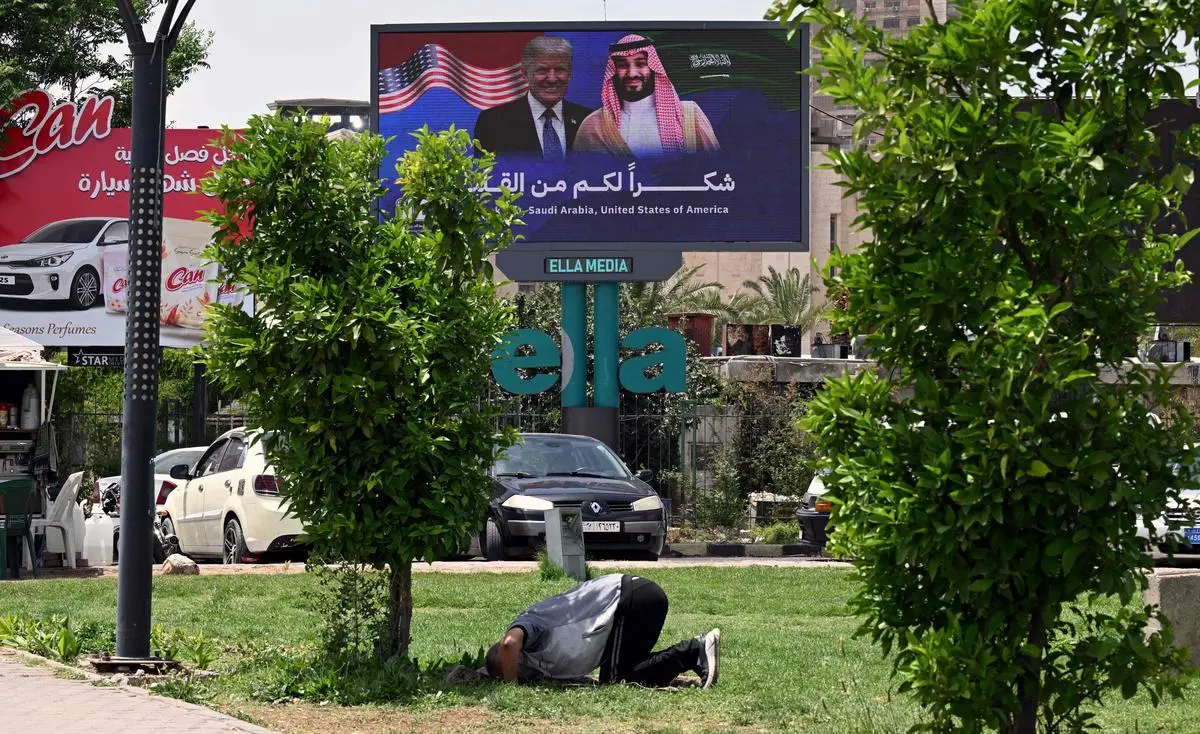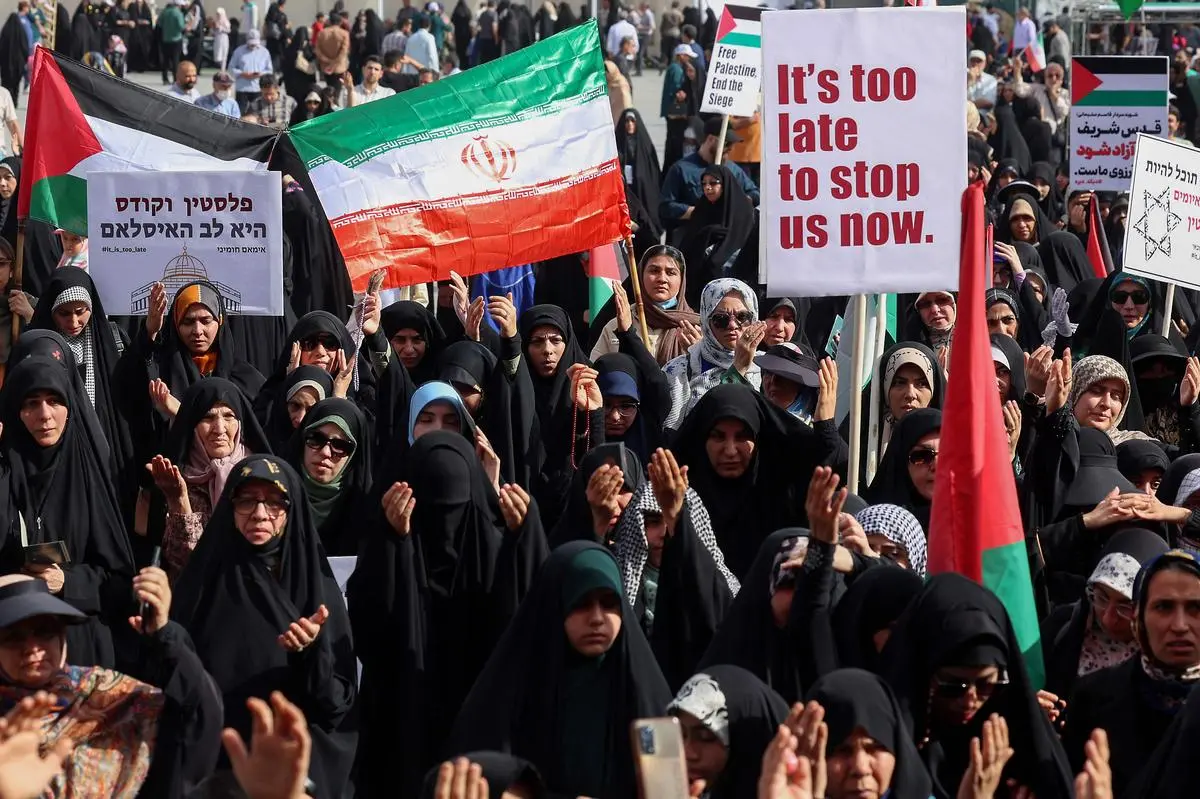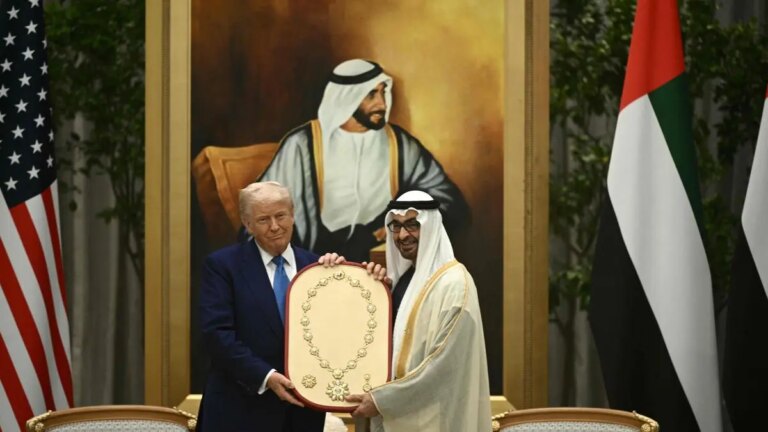Two contrasting images have appeared from Western Asia in recent weeks. One was the escalated destruction of Gaza by Israel and the imminent danger of starvation on Palestinian territory. The other was the dignity and sparkle of parades, lavish dinners and lavish deals in the Gulf monarchy capital when President Donald Trump visited the area in mid-May. Trump’s visit to Saudi Arabia, Qatar and the United Arab Emirates underscored the importance of the Gulf region to the US’s economic and strategic calculus. Similar to his first term, Trump chose the Gulf region as the destination for his first official visit abroad. That preference arises from his personal equation with local monarchs and the consideration that only these countries could offer business transactions of vast scale. The visit is considered a major success from a business standpoint, but it is far inferior to achieving anything in terms of Israel and Palestinian terms as it shows no signs of the genocide in the Gaza Strip being over soon.
Political aspects
President Trump has argued for his business-like status and attitude regarding the nature of Gulf politics and how he supports the monarch and conducts national issues. There was no sermon about democracy or American lifestyle values. While dealing with the investment conference in Riyadh, he pointed out that “the major transformation (the Gulf states) has not come from Western intervention or flying people on beautiful planes, giving lectures on how to live and how to control their own problems.” The Gulf Monarchy rulers would have been pleased with the assurance from President Trump that they would support such a system.
Read Also | Description: Trump’s Presidential Order on Get-of-Function Research
Israeli Prime Minister Benjamin Netanyahu’s side job in planning and conducting Trump’s visit was a key news item projected around the world through a diverse set of media. Israeli non-organisation on this trip to West Asia stood out, unlike his first visit. Netanyahu’s violation of the Israeli Hama ceasefire agreement, which had just reached in time for Trump’s second term inauguration, was seen as a blow to the US president’s calculations in the region. Netanyahu was not satisfied with the Trump administration negotiating with Iran on the nuclear issue. Nor did the usual US consultations with Israel regarding major Western Asian initiatives and visits. Without Qatar mediation and Israeli involvement, the release of US hostage Edan Alexander, negotiated by Steve Witkov with Hamas, was widely viewed as an empirical demonstration of American diplomatic efforts independent of Israel.
All this does not mean that US military and political support for Israel has declined in a recognizable way. Like President Joe Biden’s term, the United States under Trump continues to arm Israel in his genocide acts in Gaza. Trump equates US pro-Palestinian resistance with “anti-Semitism,” and uses it to curb student activity at US universities. It is also used to pursue his aggressive anti-immigration policies.
The key political developments were Trump’s encounter with Syrian interim president Ahmad al-Sharaa and his promise to lift US sanctions on Syria, a major departure from previous US policies. Many Trump officials reportedly only learned about the movement at the last minute. The Israeli government appears to have no prior knowledge of the move.
Business Transactions
Signing the large corporation’s deal between the three Gulf monarchies and the United States was a major aspect of Trump’s visit and was highlighted by the American media. Trump successfully projected his trip as a trip that brought unprecedented investments to the United States, thus paving the way for the creation of thousands of jobs. He even praised it from some Democrats who otherwise would be critical of his domestic policy.
Trump was accompanied by more than 30 US business leaders who could extract lucrative deals through President Trump’s leadership in negotiations. Most of these business houses have made a significant contribution to Trump’s election fund and have contributed more to his inauguration fund, which has earned him the place for his delegation.
A White House statement regarding the trip said: “President Donald J. Trump’s first official trip was a huge success, with a huge success, in addition to a $600 billion investment commitment from Saudi Arabia, a $1.2 trillion economic exchange agreement with Qatar, and a $20 billion Arab contract in a $243.5 billion U.S. Qatar commercial and defense contract. The White House also outlined the statements of its CEO and other business leaders.
Sectors such as defense and artificial intelligence held important positions in business contracts. Saudi Arabia has agreed to purchase US$142 billion worth of military equipment and services from a variety of US companies. Qatar has agreed to invest $10 billion in the US southwest Doha and purchase $42 billion worth of weapons from the US. Qatar also agreed to acquire drone technology and remotely piloted aircraft from a total of $3 billion US defense company. In the AI sector, large investments have been announced, particularly related to the use of military and surveillance. They raise many ethical and political issues and certainly boost the control these monarchies have over their population.

The Damascus sign displays Saudi Crown Prince Mohammed bin Salman and US President Donald Trump, who thanked Saudi Arabia and the United States on May 14, 2025. | Photo Credit: Louai Beshara/AFP
The UAE and the US have agreed to build a huge AI data center in Abu Dhabi. Humain, a newly launched Saudi Arabian company backed by Saudi Arabia’s Public Investment Fund and Crown Prince Mohammed bin Salman himself, will receive 18,000 AI chips from the American multinational company Nvidia. US technology and aerospace giants, including AMD, Global AI, Cisco, Google and Amazon, are poised to benefit from potential investments and purchases by Saudi Arabia, Qatar and the UAE. In a massive deal, Qatar Airways agreed to buy 210 jets from US manufacturer Boeing. In another gesture, Qatar presented a luxury Boeing 747 worth $400 million. The issues of ethics and the conflict of interest that comes with accepting such a large gift did not thwart him. Personal business interests and intertwining between us businesses and the US government were important aspects of the visit. Trump’s visit promoted new golf club trading and cryptocurrency exchanges through family-owned businesses such as World Liberty International.
Trump’s visit and the deal signed during that time highlight the region’s importance to American interests. The Gulf region hosts US military bases, but the US offers security umbrellas to the Gulf monarchy in the form of protecting oil cargo and ensuring the security of its control regime. The strategic significance of the Gulf was recognized by the Richard Nixon administration in the early 1970s itself. This is the “twin pillar policy,” which takes Shah’s Iran and Saudi Arabia as two pillars of the Gulf American policy and Israel as another pillar of the large-scale Western Asia region. The Iranian Revolution in 1979 disrupted the arrangement as the Islamic Republic became hostile to American interests in the region.
When the Gulf Cooperation Council was established in the early 1980s, the United States maintained good relations with the region’s Saudi-led system. The events of September 11, 2001 created a temporary lack of warmth in Saudi relations, and Saudi Arabia sought to expand security cooperation with China, Russia and India. However, the importance of the Gulf region for protecting US interests does not diminish, and the US security architecture there continues to be valuable to Gulf countries. Trump’s visit helped strengthen such strategic relationships, but business transactions attracted most of the media attention.
Factors of Iran
Trump’s visit took place just before nuclear negotiations between Iran and the United States, mediated by Oman and began in Rome. During the visit, Trump suggested withdrawing sanctions against Iran if an agreement is reached on Iran’s nuclear program. At the same time, he issued the threat of bombing Iran if negotiations failed. There are many differences that need to be sorted out, especially at the level of nuclear enrichment in Iran.
Iranian President Masoud Pezeshkian is on a cautious path in ongoing nuclear negotiations. Iran wants to lift sanctions decades ago. The country’s highest leader, Ayatollah Ali Khamenei, has publicly expressed skepticism regarding the US intentions of the Gulf region. He recently said that the US should leave the Persian Gulf for peace in the region. But what has now emerged from President Trump’s visit is the strengthening of the US strategic and economic presence.

A rally in support of Palestinians in Tehran on May 2, 2025. Iran, which has sought sanctions decades ago, is in the midst of nuclear negotiations with the United States. | Photo Credit: AFP
Saudi Arabia and Qatar are trying to engage with Iran in a variety of ways. Saudi Arabia’s agreement The recent past, the reopening of embassies in each of the capitals, and the launch of Saudi Airlines’ operations in Tehran, have shown an expansion of mutuality in the interests between Saudi Arabia and Iranians.
Also Read | Trump’s tariff turmoil could quickly track China’s rise
Saudi Arabian Defense Minister Prince Khalid bin Salman visited Iran just before Trump’s visit. Saudi Arabia and other Gulf countries do not want the US-Iran conflict to escalate into a bombing campaign, as it disrupts the entire region and its oil exports.
Trump’s trip to West Asia was sufficient to meet his national constituency by committing to economic growth and job creation, as the US economy is experiencing chaotic transformation due to his tariffs and immigration policies.
The Gulf administration and Syria were guaranteed by the United States on security and sanctions relief, respectively. The biggest profit is because American companies will be greatly enriched with the series of business transactions that President Trump was able to negotiate. There was no major push from the three Gulf countries to promise that the US would force Israel to end the ongoing genocide of Gaza.
AK Ramakrishnan is a retired professor at the International Studies School of Studies at Jawaharlal Nehru University, Center for Western Asian Studies.


